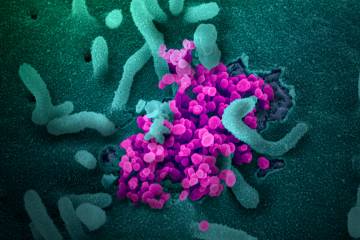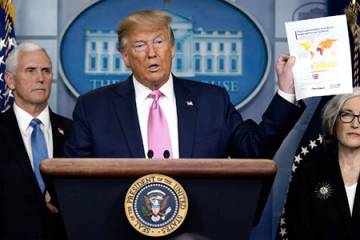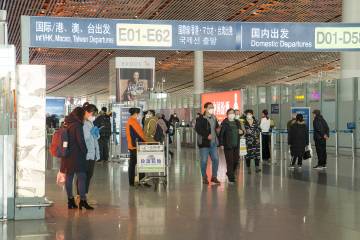Johns Hopkins University experts on Monday discussed the ongoing coronavirus outbreak and the readiness of countries—including the United States—to respond to the spread of illness, which has infected more than 90,000 people around the world.
Jennifer Nuzzo, a senior scholar at the Johns Hopkins Center for Health Security, discussed findings published in the Global Health Security Index, a project she co-led to analyze and rank 195 countries on their pandemic preparedness. The report, released in October 2019, found that no country is fully prepared to respond to epidemic or pandemic threats, Nuzzo said, noting that all countries scored especially low on the preparedness of their health systems to respond to an outbreak.
Unprepared health systems don't only fail the patients who are sick during a pandemic scenario, Nuzzo said. The stakes are often much higher.
"We have seen time and time again in outbreak situations that health systems that are unprepared often serve as points that amplify transmission to the larger community," she said. "It's not just important that we have the doctors and nurses there to save patients' lives—that's of course extraordinarily important—but we have to make sure that when patients do show up at these health facilities, what happens there is safe such that we don't inadvertently spread to the patients, the clinicians, and the broader community."
Video credit: Johns Hopkins University
All countries—including the United States, where there are now more than 100 confirmed cases and six deaths attributed to the coronavirus, known as COVID-19—must do more to ensure they have fundamental preparedness measures in place, Nuzzo added. These measures include ensuring enough medical staff is trained and available at health facilities and that there is enough personal protective equipment like masks and gloves to protect health workers.
Countries must also work to improve how vulnerable populations including the elderly and the poor access health care. In the United States, that includes grappling with how the high costs associated with health care can create a barrier that prevents sick people from seeking treatment.
"In an emergency, it's absolutely important that people are able to physically get to health facilities so that they can get there in time to be treated early," Nuzzo said. "But then another dimension to this is that fear of the cost of health care is a deterrent that can create a bad situation where people remain at home or in their communities potentially affecting others."
Nuzzo was joined on the panel by Tara Kirk Sell, a senior scholar at the Center for Health Security, and Lauren Sauer, director of operations at the Johns Hopkins Office of Critical Event Preparedness and Response, or CEPAR. The panel was moderated by Joshua Sharfstein, vice dean for public health practice and community engagement at the Bloomberg School of Public Health.
Posted in Health
Tagged public health, global health, center for health security, coronavirus











